
Registering Republican Realignment: GOP Convention Showcases Conservatism’s New Direction
Joe Selvaggi talks with the CATO Institute’s Dr. Norbert Michel about the shift in the Republican vision and policy goals from decades past, as reflected in the nominees and guest speakers at the 2024 GOP Convention.

Candidate Selection Breakdown: Presidential Primary Primacy or Determined Delegate Detour
Joe Selvaggi talks with MIT Professor Charles Stewart III about the political party’s presidential candidate nomination process and what or who ultimately decides who is chosen.

Breaking Down Encampments: Court Finds no Right to Sleep Outdoors
Joe Selvaggi speaks with Manhattan Institute Senior Fellow Dr. Stephen Eide about the Grants Pass v. Johnson Supreme Court decision and its impact on homeless encampments in Boston and across the country.

Underfunding Overdose Alternatives: Price Controls Hinder Search for Non-Addictive Opioids
Joe Selvaggi talks with Pioneer Institute's Director of Healthcare Initiatives, Dr. Bill Smith, about the challenges posed by new regulations and price controls for developing alternatives to addictive opioids.

Unlocking Affordable Housing: Sources and Solutions for Cost Crisis
Joe Selvaggi talks with Pioneer Institute Housing Fellow Andrew Mikula about his research on the causes and cures for our region's highest-in-the-nation housing costs.
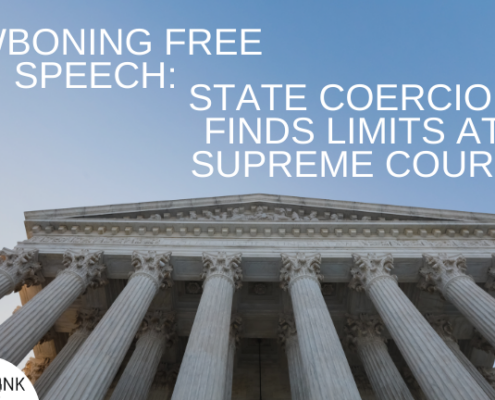
Jawboning Free Speech: State Coercion Finds Limits at Supreme Court
Joe Selvaggi talks with Cato Institute legal scholar Thomas Berry about the effects of the 9-0 Supreme Court decision in NRA v. Vullo on states' ability to use regulation to target disfavored free speech.

Protectionism’s Bipartisan Embrace: Who Pays When Imports Cost More
Joe Selvaggi talks with international tax and trade expert Clark Packard about the tension between the economic and political calculus behind the Biden administration's recently announced tariffs on Chinese products, including EVs, batteries, and steel.

Universal Savings Accounts: Designing Tax Incentives that Pay to Save
Joe Selvaggi talks with CATO Institute’s Dr. Adam Michel about the opportunity for tax reforms that promote individual savings, an important foundation for economic growth, personal well-being, and intergenerational support.

Precision Law Enforcement: Can Gunfire Detection Technology Serve and Protect Everyone?
Joe Selvaggi talks with SoundThinking's Senior Vice President Tom Chittum about gunfire location technology promises and pitfalls when deployed by law enforcement in high-crime communities.

Examining Diversity’s Dividends: Can Studies Survive Contact with Peer Review
Joe Selvaggi talks with business data scientist Dr. Jeremiah Green about his peer review work examining consulting firm McKinsey’s studies on the measurable financial benefits of diversity in corporate executive leadership.
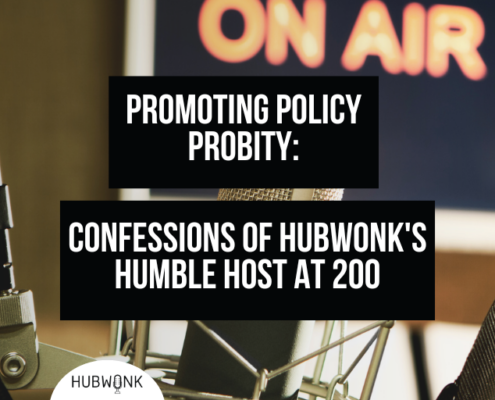
Promoting Policy Probity: Confessions of Hubwonk’s Humble Host at 200
Hubwonk's Joe Selvaggi marks episode 200 with a solo podcast that offers some backstory of his journey to becoming a host and offers some insights learned from more than 4 years of interviews.
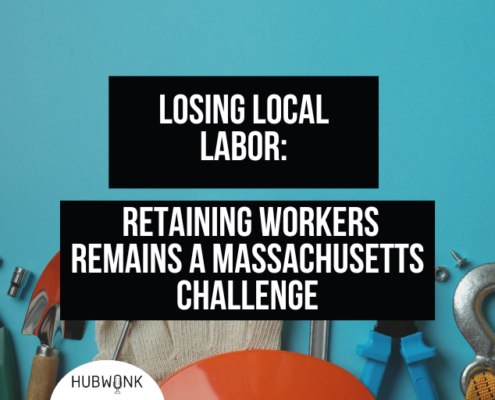
Losing Local Labor: Retaining Workers Remains a Massachusetts Challenge
Joe Selvaggi talks with Pioneer Institute's Research Associate Aidan Enright about Pioneer's annual report on the Massachusetts labor force and discuss which trends could portend trouble for the state’s future.
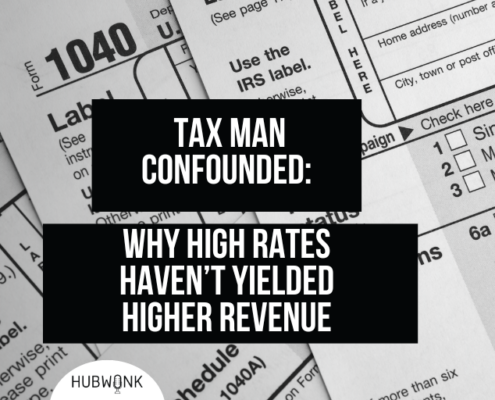
Tax Man Confounded: Why High Rates Haven’t Yielded Higher Revenue
Joe Selvaggi talks with economic scholar Dr. Brian Domitrovic about the history of federal tax policy and the reasons for why varied marginal rates fail to correlate with either tax revenue or GDP growth.

Industrial Policy Reimaged: Can Government Improve Free Markets
Joe Selvaggi discusses industrial policy, its aspirations and limitations, with CATO Institute Associate Director Colin Grabow, in response to Senator Rubio's thought piece advocating for a more active role for government in the economy.

Posting Patient Prices: Transparency Cure for Hospital Blank Checks
Joe Selvaggi interviews entrepreneur, philanthropist, and founder of PatientRightsAdvocate.org, Cynthia Fisher, discussing her research and advocacy for enhanced healthcare price transparency. This initiative has the potential to improve life expectancy and save Americans over a trillion dollars annually.

Constitutional Property Taking: Exclusionary Zoning’s Costs to Owners and Society
Joe Selvaggi talks with George Mason Law Professor Ilya Somin about the the costs, benefits, and legal foundations of exclusionary zoning argued in his recent paper: The Constitutional Case Against Exclusionary Zoning.

Poor Housing Incentives: Tax Credits Reward Politicians Not Neighbors in Need
Joe Selvaggi interviews Chris Edwards, Chair of Fiscal Studies at CATO Institute, about his research on the 40-year history of Low-Income Housing Tax Credits. They delve into its features, effects, and potential alternatives that could provide greater benefits at lower costs to taxpayers.

Biden’s Budget Breakdown: Pragmatic Progress or Political Posturing
Joe Selvaggi talks with Manhattan Institute Senior Fellow Brian Reidl about how the contours of President Biden’s recently released budget proposal reveal a persistent, bipartisan reluctance to address profound structural deficits.

Genetic Therapy Revolution: Benefits and Barriers for Medicine’s New Horizon
Joe Selvaggi talks with neurobiologist and writer Dr. Anne Sydor about the potential for gene therapy to address deadly and debilitating diseases and how current health care models must adapt to encourage this nascent technology.

Contours of Content Curation: SCOTUS Hears Online Free Speech Cases
Cato Institute's Thomas Berry, talks about oral arguments at the Supreme Court in the NetChoice cases, exploring the First Amendment questions that affect both social media users and the platforms that curate their content.

Mortgage’s New Normal: Guide to Better Borrowing Amidst Higher Rates
Joe Selvaggi talks with mortgage expert, Trip Miller of Cambridge Savings Bank, about mortgage rates and trends and explores best practices for finding a mortgage structure that suits individual buyers’ needs.

Medicaid’s Massive Miasma: Taming Beacon Hill’s Burgeoning Budget Beast
Marc Joffe, a state policy analyst at the Cato Institute, talks about his research on Medicaid's cost and size. They explore how Massachusetts can control spending growth while protecting other priorities.
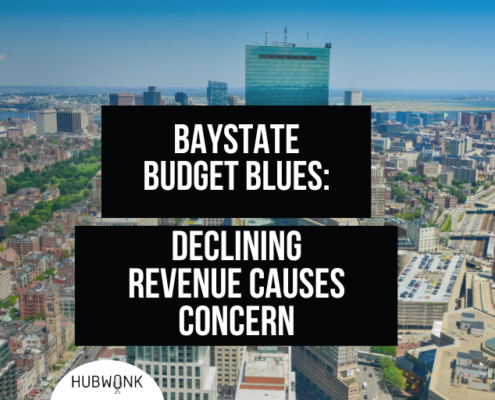
Baystate Budget Blues: Declining Revenue Causes Concern
Joe Selvaggi engages in a conversation with Pioneer Institute’s Eileen McAnneny, Senior Fellow for Economic Opportunity, to analyze the status of the 2024 budget. They compare actual revenue and spending with pre-July 1 estimates, investigating potential reasons for any surpluses or shortfalls. They also dive into policy implications for legislators as they approach fiscal 2025.

Smothering Gas Exports: President Sides with Environmentalists Over Environment
Dr. Benjamin Zycher, a senior fellow at the American Enterprise Institute, talks on the impact of President Biden's executive order to halt liquefied natural gas export approvals. He explores potential economic impacts, the response from trading partners, and the negligible effect on climate.

U.S. Manufacturing Health: Does the U.S. Need an Industrial Policy?
Scott Lincicome from the Cato Institute discusses the U.S. manufacturing industry, international trade, and industrial policy. He dispels the myth of manufacturing decline, highlighting sector evolution and productivity. The conversation moves to industrial policy, emphasizing the need for targeted protection and cautioning against broad subsidization due to potential inefficiencies.
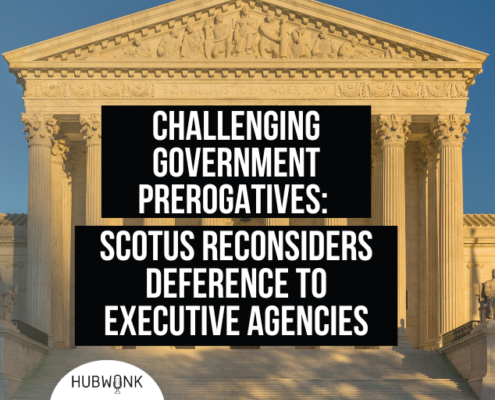
Challenging Government Prerogatives: SCOTUS Reconsiders Deference to Executive Agencies
Joe Selvaggi engages in a conversation with legal scholar Ilya Shapiro from the Manhattan Institute regarding the Loper Bright Enterprises Supreme Court case that questions the Chevron Doctrine. This doctrine instructs judges to defer to government agencies in situations where laws are silent or unclear.
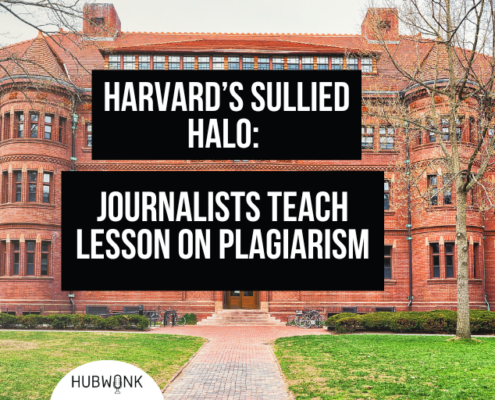
Harvard’s Sullied Halo: Journalists Teach Lesson on Plagiarism
Joe Selvaggi talks with investigative reporter Chris Brunet about his role investigating and exposing former Harvard President Claudine Gay’s academic plagiarism, a story that lead to her eventual resignation.

Drug Discount Distortions: How Middlemen Increase Costs and Reduce Access
Joe Selvaggi talks with Drs. Bill Smith and Robert Popovian about how the complex system of rebates from drug companies to insurance firms serve to increase costs and reduce access for patients.

Boston’s Building Bargain: Coaxing Commercial Conversions to Condos
Joe Selvaggi discusses the strategic goals of Boston's Downtown Office to Residential Conversion Pilot Program with Arthur Jemison, the head of BPDA planning. The aim is to transform underutilized offices in Downtown into vibrant places to live.
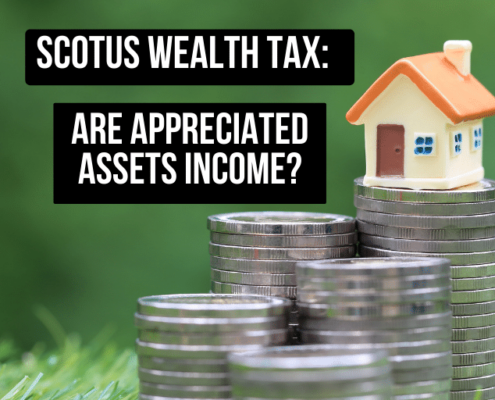
SCOTUS Wealth Tax: Are Appreciated Assets Income?
Joe Selvaggi talks with CATO Institute constitutional scholar Thomas Berry about the recently argued Moore v. U.S.A. case, which challenges the idea that income must be realized before it can be taxed.
